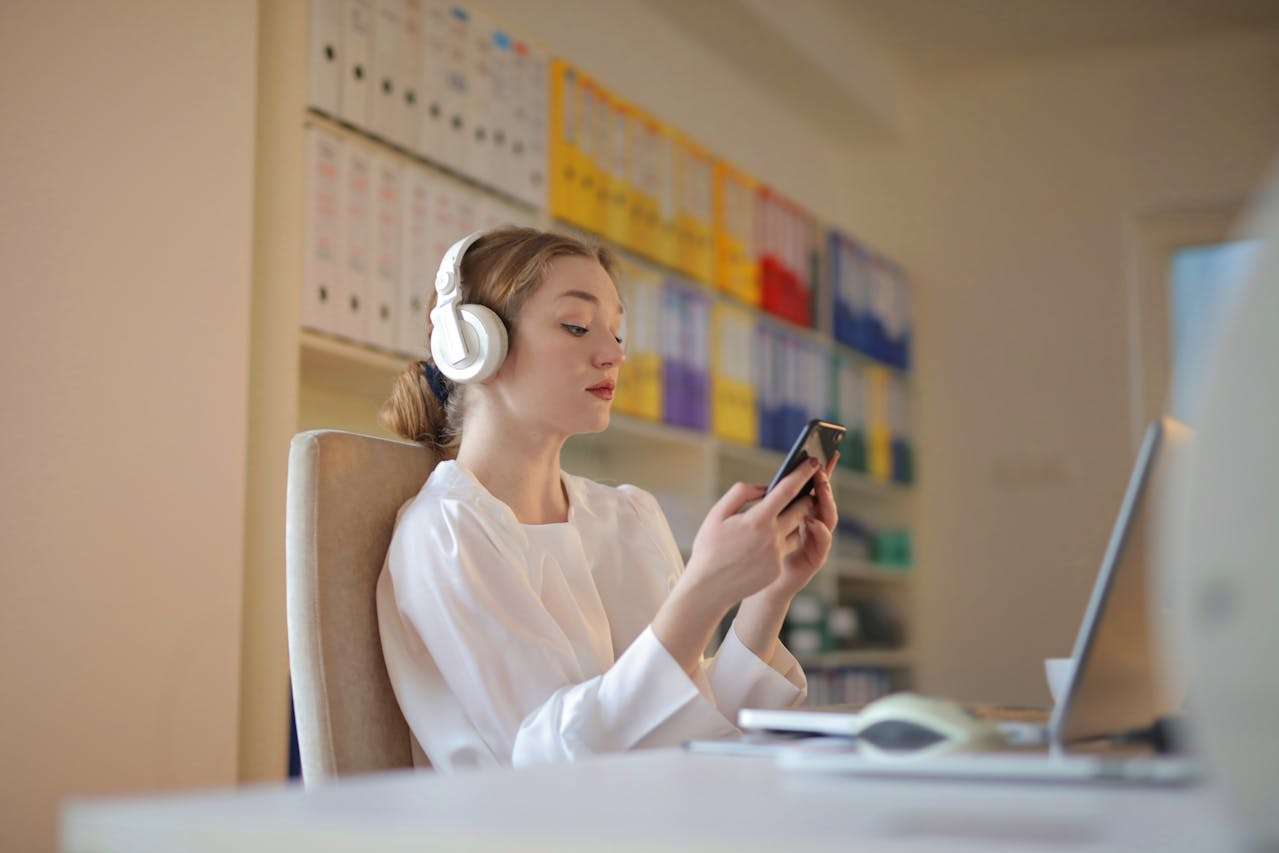智能手机已成为我们日常生活中不可或缺的一部分。从沟通到娱乐,从学习到导航,手机提供了无数便利。然而,过度使用手机也可能带来注意力分散、睡眠质量下降以及面对面交流减少等问题。本文精选五篇关于手机使用利弊的高中英语议论文范文,并附中文翻译、重点点评与学习建议,帮助学生提升写作能力。
范文一:手机的积极影响
Nowadays, smartphones play a very important role in our lives. They help us stay connected with family and friends no matter where we are. With just one tap, we can make calls, send messages, or even have video chats. Besides, smartphones provide great support for learning. Students can search for information, watch educational videos, and take online courses. In emergencies, smartphones can also save lives by allowing people to call for help quickly. In short, smartphones bring great convenience to modern life.
如今,智能手机在我们的生活中扮演着非常重要的角色。它们帮助我们无论身处何地都能与家人朋友保持联系。只需轻轻一点,我们就能打电话、发信息,甚至进行视频聊天。此外,智能手机对学习也有很大帮助。学生可以搜索资料、观看教学视频,或参加在线课程。在紧急情况下,手机还能通过快速求助挽救生命。总之,智能手机为现代生活带来了极大的便利。
✏️点评与重点:本文结构清晰,使用了“Nowadays”“Besides”“In short”等连接词,使文章逻辑流畅。词汇如“stay connected”“educational videos”“emergencies”均为高中阶段常用表达,适合模仿。重点句型:“With just one tap”“allow people to...”可灵活用于其他科技类话题。
范文二:手机带来的问题
Although smartphones are useful, they also cause many problems. One major problem is that people, especially teenagers, spend too much time on their phones. This can lead to poor study performance and lack of physical activity. Some students even use smartphones to cheat in exams. Another issue is that too much screen time can harm eyesight and cause sleep problems. Moreover, when people are always looking at their phones, they may ignore real-life relationships. Therefore, we should use smartphones wisely and not let them control our lives.
尽管智能手机很有用,但它们也带来了很多问题。一个主要问题是人们,尤其是青少年,花太多时间在手机上。这可能导致学习成绩下降和缺乏体育锻炼。有些学生甚至用手机在考试中作弊。另一个问题是长时间看屏幕会伤害视力并影响睡眠。此外,当人们总是低头看手机时,可能会忽视现实生活中的关系。因此,我们应该明智地使用手机,不要让它们控制我们的生活。
✏️点评与重点:本文使用了“Although”“One major problem”“Another issue”“Therefore”等逻辑连接词,增强了说服力。关键词如“poor study performance”“lack of physical activity”“cheat in exams”是议论文高频表达。重点句型:“we should... and not let them...”可用于提出建议类结尾。
范文三:平衡使用手机
Smartphones are neither completely good nor completely bad. The key is how we use them. If we use smartphones properly, they can help us learn, work, and communicate more efficiently. However, if we become addicted to games or social media, they can waste our time and harm our health. Therefore, it is important to set limits on screen time. For example, we can turn off notifications after study hours or use apps that track phone usage. By finding a balance, we can enjoy the benefits of smartphones without suffering their negative effects.
智能手机并非完全好或完全坏,关键在于我们如何使用。如果我们合理使用,它们可以帮助我们更高效地学习、工作和交流。然而,如果我们沉迷于游戏或社交媒体,手机就会浪费时间并损害健康。因此,设定屏幕使用时间限制很重要。例如,我们可以在学习时间后关闭通知,或使用追踪手机使用情况的应用。通过找到平衡,我们既能享受手机带来的好处,又能避免其负面影响。
✏️点评与重点:本文采用“中立立场”,适合辩证类话题。使用“neither...nor...”“The key is...”“By finding a balance”等表达,体现思辨能力。词汇如“addicted to”“set limits”“track phone usage”贴近生活,易于掌握。重点句型可用于表达“适度使用”观点。
范文四:手机与学习效率
In today’s world, smartphones have become a tool for learning. Many students use educational apps to improve their knowledge. For instance, language learners can practice vocabulary with flashcards, and science students can watch experiment videos. However, smartphones can also distract students. Notifications from games or social media often interrupt study time. As a result, many students find it hard to focus. To solve this problem, schools and parents should guide students to use smartphones responsibly. Only in this way can smartphones truly support education.
在当今世界,智能手机已成为学习的工具。许多学生使用教育类应用来提升知识水平。例如,语言学习者可以通过单词卡练习词汇,理科学生可以观看实验视频。然而,手机也可能分散学生注意力。游戏或社交媒体的通知常常打断学习时间。结果,许多学生难以集中精力。为解决这一问题,学校和家长应引导学生负责任地使用手机。只有这样,智能手机才能真正助力教育。
✏️点评与重点:本文聚焦“学习效率”,使用“for instance”“as a result”“only in this way”等连接词增强逻辑性。关键词如“educational apps”“flashcards”“interrupt study time”实用性强。重点句型:“Only in this way can...”为倒装句,提升语言层次,适合高级表达。
范文五:未来手机使用的建议
As technology develops, smartphones will become even more powerful. To make the best use of them, we need to develop good habits. First, we should avoid using phones during meals or before bedtime. Second, we can set daily usage limits to prevent overuse. Third, we should encourage more face-to-face communication instead of always texting. If everyone follows these simple rules, we can build a healthier relationship with our smartphones. In the future, smart technology should serve us, not control us.
随着科技发展,智能手机将变得更加强大。为了更好地利用它们,我们需要养成良好的使用习惯。首先,我们应避免在吃饭或睡前使用手机。其次,可以设定每日使用时长以防止过度使用。第三,应鼓励更多面对面交流,而不是总是发信息。如果每个人都能遵守这些简单规则,我们就能与手机建立更健康的关系。未来,智能科技应服务于我们,而不是控制我们。
✏️点评与重点:本文提出具体建议,结构为“总—分—总”。使用“First”“Second”“Third”清晰列出措施,结尾升华主题。关键词如“daily usage limits”“face-to-face communication”“serve us, not control us”具有现实意义。重点句型可用于建议类作文结尾,提升文章深度。
总结与学习建议
通过这五篇范文,我们可以看到关于手机使用的不同视角。每篇文章都结构清晰,使用恰当的连接词和词汇。要提高写作水平,建议:(1) 使用“however”“besides”“therefore”等连接词;(2) 用具体例子支持观点;(3) 在结尾明确表达立场。可练习“社交媒体”“在线学习”等类似话题,提升写作熟练度。
👉 关注 水滴英语作文网,点亮表达力,收藏好范文,写出你的英语之声!

